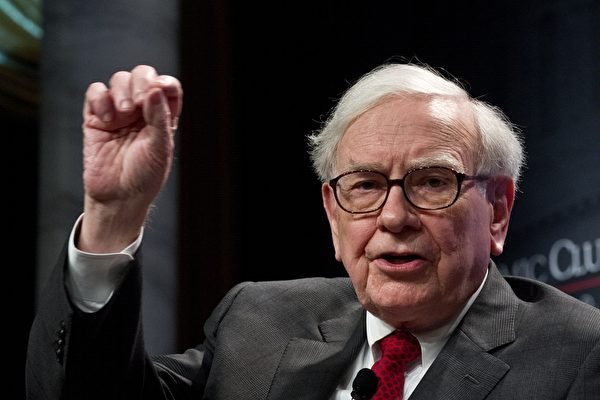Warren Buffett is acclaimed as one of the greatest investors of all time, amassing a wealth of over a hundred billion dollars through Berkshire Hathaway. But he is not just a brilliant investor; he is also a talented one.
Here are the top ten secrets of Buffett’s successful investments compiled by the financial website Bankrate.
As investors, everyone aims to profit in the market, and one of the best ways to achieve this goal is to avoid losses. The starting point is not seeking the highest returns but avoiding losses first, then considering profits. When decisions that could lead to portfolio losses are eliminated, what remains is more likely to be profits.
While some value investors focus solely on buying the cheapest companies, Buffett recommends a better approach of purchasing “excellent” companies—those with better economic conditions and higher competitive positions.
A company with a strong competitive advantage may continue to be profitable even if purchased at a high price, helping you out of trouble. On the other hand, an ordinary company may falter and never return to the purchase price or exceed it.
Some of the high-quality companies Buffett has heavily invested in over the years include Apple, American Express, Coca-Cola, Moody’s, and See’s Candies.
As of the end of 2024, Apple was the largest holding in Berkshire Hathaway’s stock portfolio.
Buffett advises taking swift and decisive action when opportunities arise. For instance, when stock prices plummet significantly, large-scale investments are needed as good prices may not reappear quickly.
When investors become greedy and inflate stock prices, Buffett feels fearful as the market may soon experience a crash.
Conversely, when investors flee the market or specific stocks, Buffett becomes more interested as prices become cheaper. When stocks are cheap, their risks are different from when they are expensive. This is Buffett’s approach to avoiding losses.
At the beginning of 2020, market turmoil due to concerns about COVID-19 made investors uneasy, leading to a market crash. However, some investors entered the market in fear, and the market rebounded strongly from its lows.
Buffett emphasizes once again that a key factor for successful investing is character, not intelligence. Investors should not be swayed by public sentiment but should make relatively emotion-free decisions by focusing on objective facts for better choices.
One of Buffett’s most famous quotes embodies the essence of seizing opportunities. Before an attractive opportunity arises, one that meets the potential return standards for risk-taking, there is no need to invest.
Buffett suggests once more that investors wait until they find an opportunity that is unlikely to lose money. There is no need to risk investing in stocks that are uninteresting or businesses that are not understood.
Buffett advises most investors to use index funds to invest in the market rather than attempting to pick individual stocks, as that would compete with professionals who have extensive knowledge of companies. Instead, buying index funds based on the S&P 500 index gives ownership of the market.
Another advantage of using index funds is instant diversification of investments, which can reduce risks.
Buffett reminds investors that active traders are unlikely to yield hefty returns. In the investment world, frequent trading may make one feel productive, but the only thing that matters is whether the analysis is correct.
Buffett uses the analogy of a punch card to emphasize the importance of thoughtful consideration before investing. Knowing you only have 20 chances in life, you wouldn’t risk buying stocks heard from the neighbor; instead, investments should be left to companies truly understood and attractively priced.
Investing can sometimes feel easy. Bull markets can last a long time, and rebounds can be fierce. But Buffett tells us that it’s only in difficult times that we discover whose investment portfolios can survive in a bear market and are prepared to weather the storm.
(This article is for general information reference only and has no recommendation intention. The Epoch Times does not provide investment, tax, legal, financial planning, real estate planning, or other personal finance advice. For specific investment matters, consult your financial advisor. The Epoch Times does not assume any investment responsibility.)

